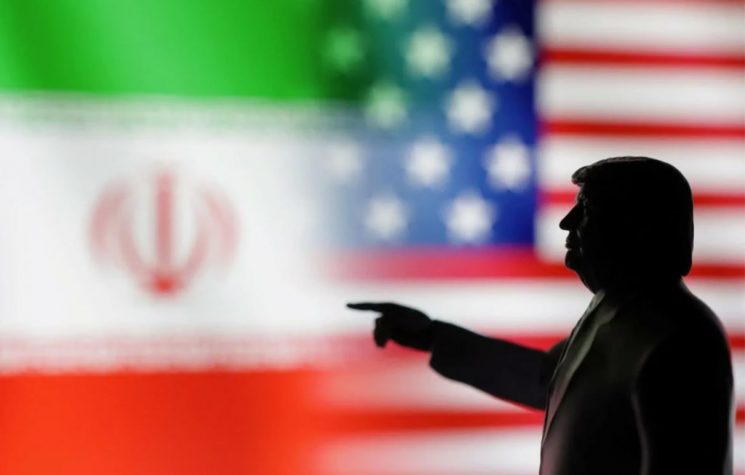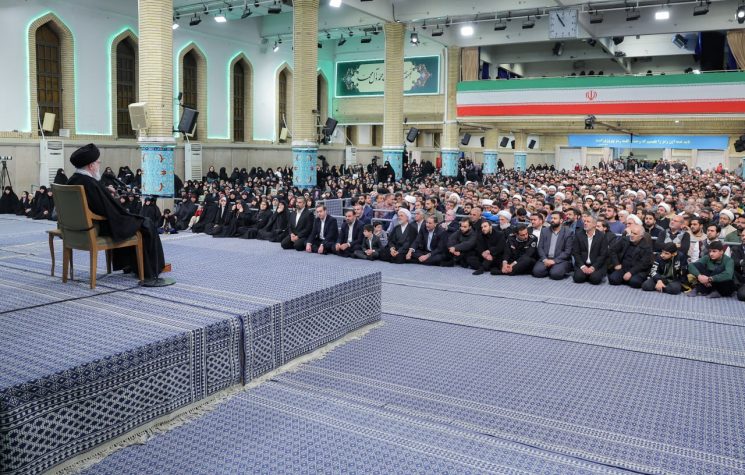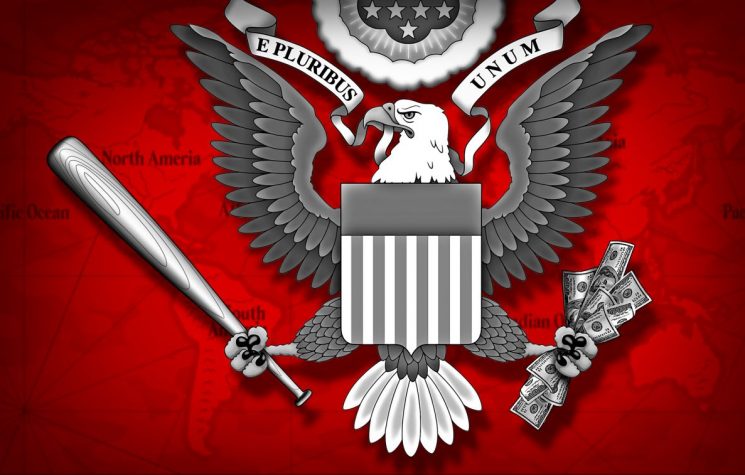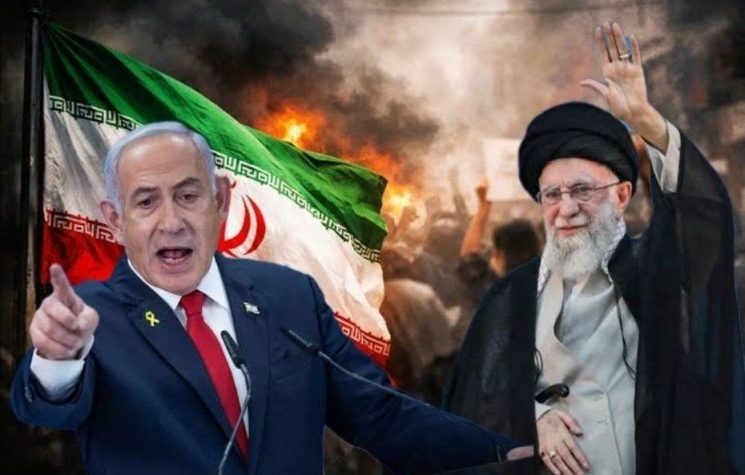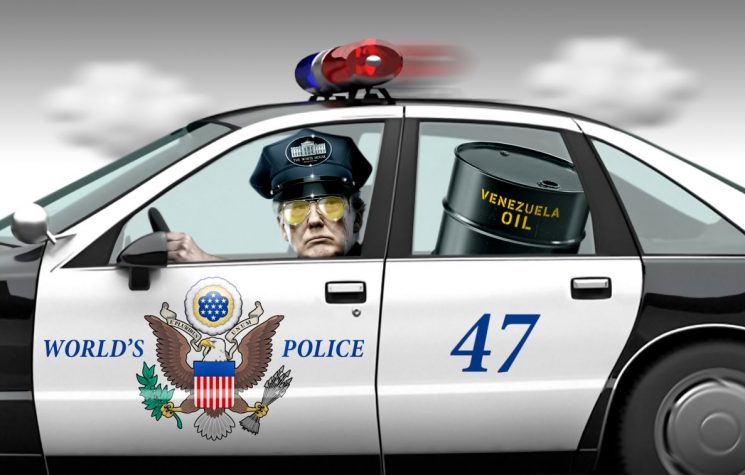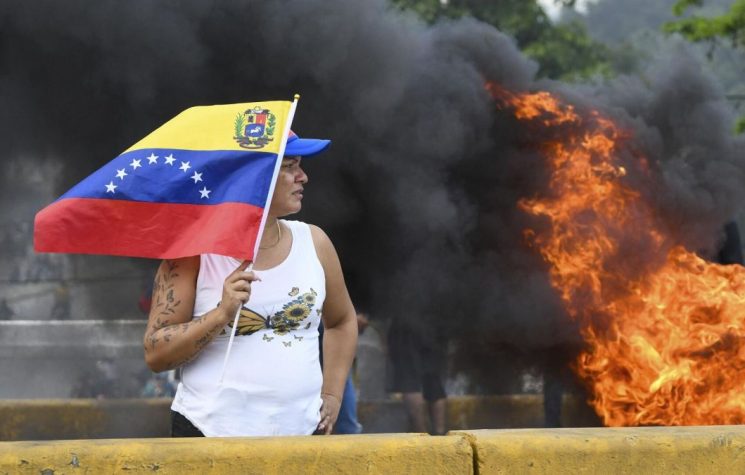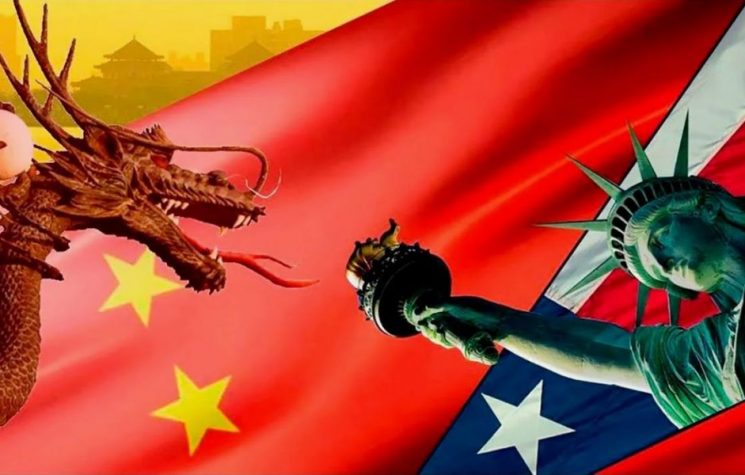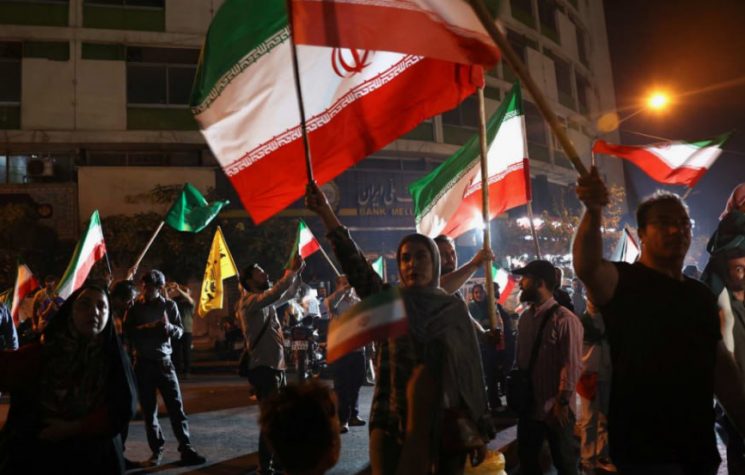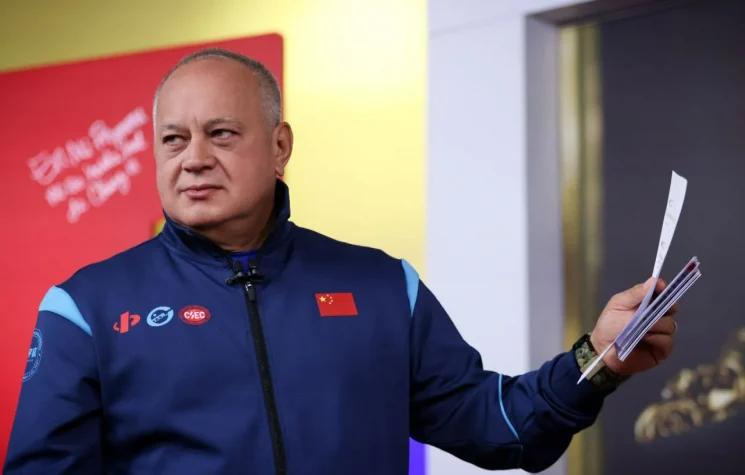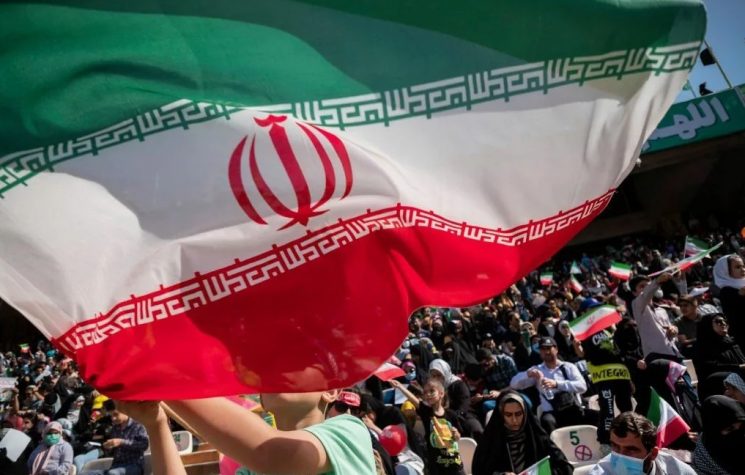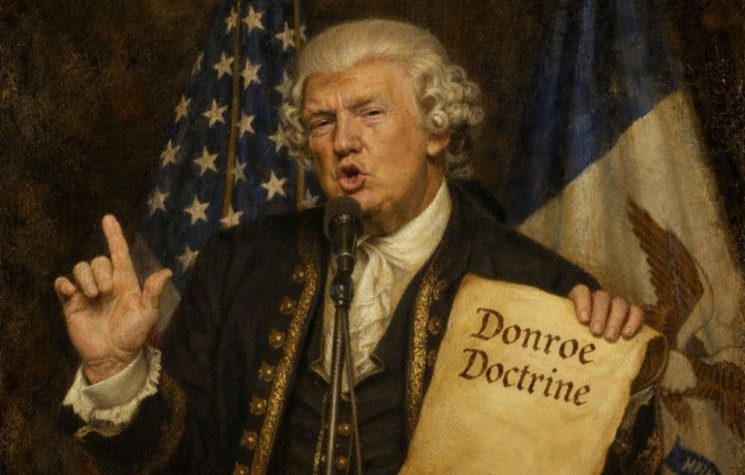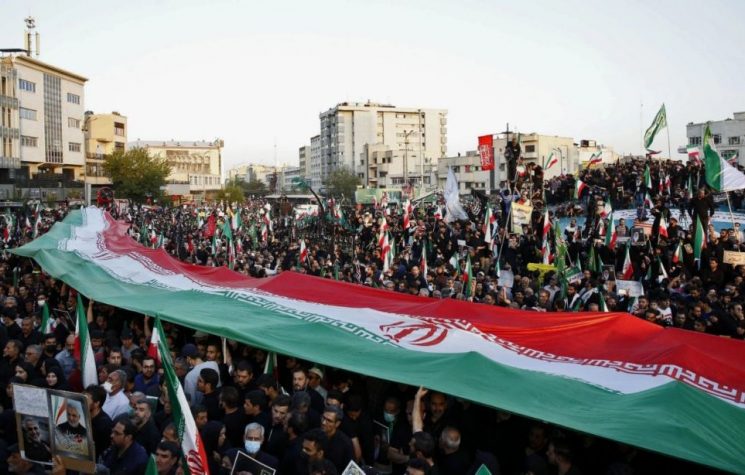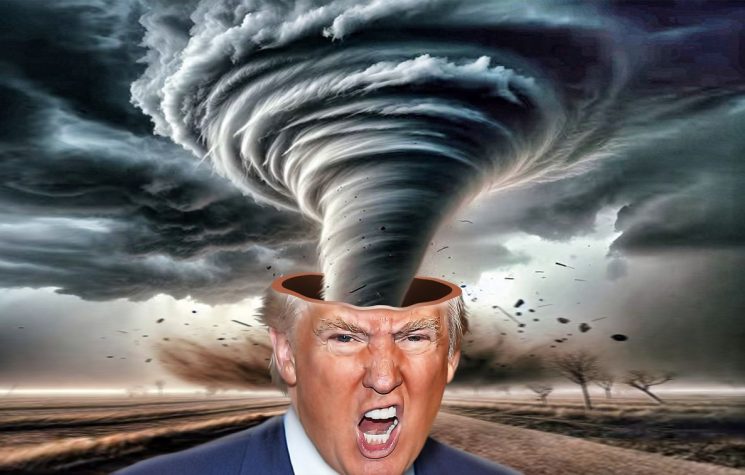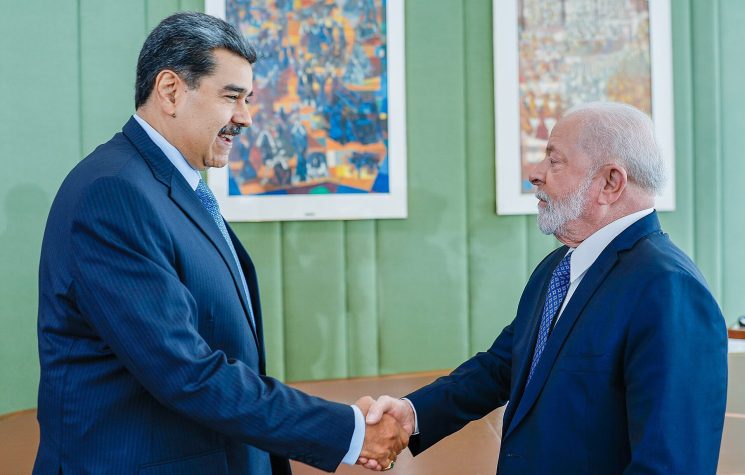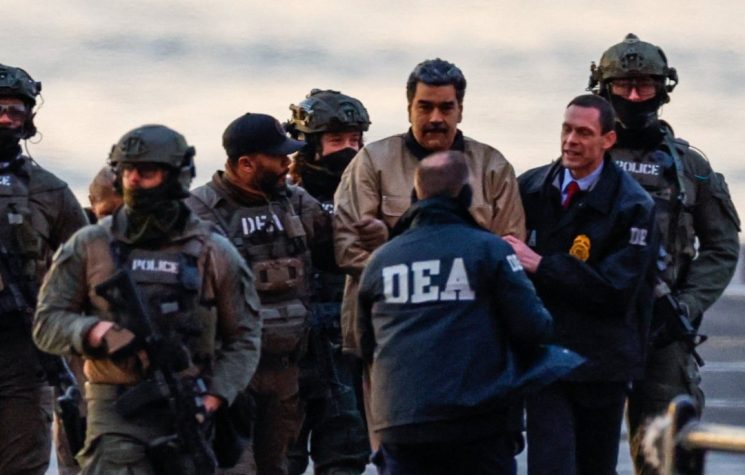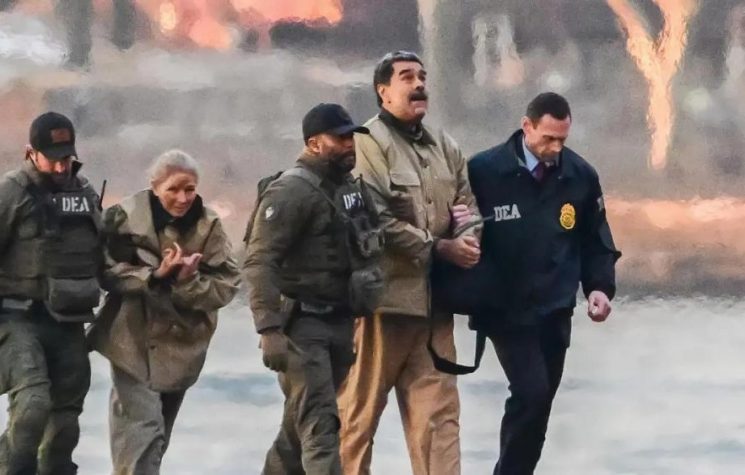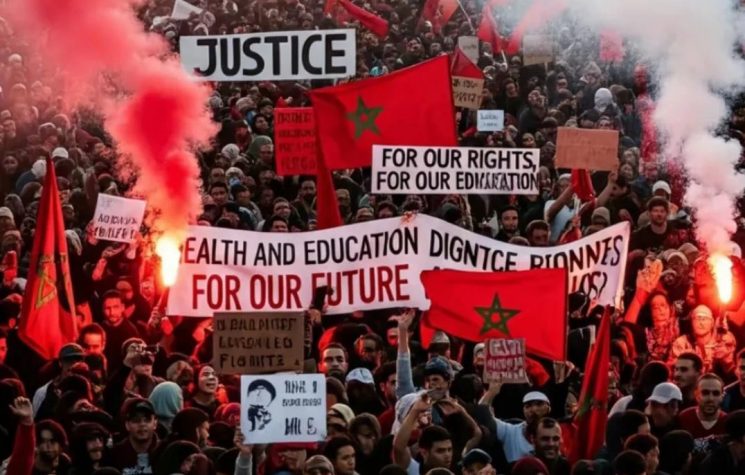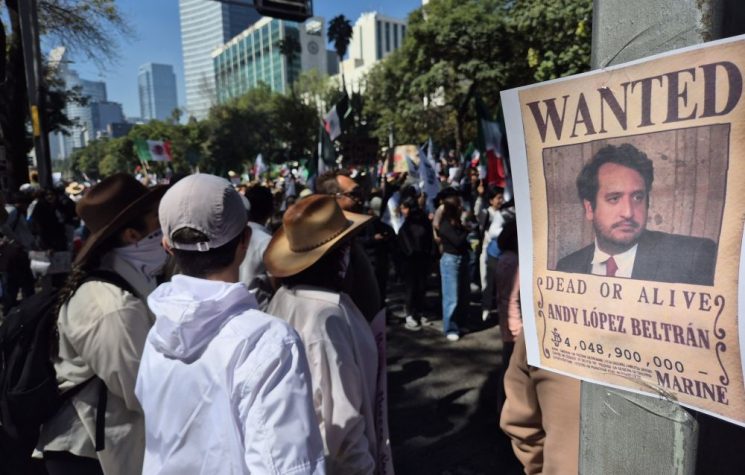There are two main explanations for the decades of obsession with Venezuela. Both are red flags for the raging imperialist bull.
Contact us: info@strategic-culture.su
Since the 1920s, Venezuela has been a very unlucky country. That was when vast oil deposits were discovered on its territory. Its misfortune began when global predators grasped that it was fabulously rich. It has the largest petroleum reserves in the world, exceeding those of Saudi Arabia, as well as huge amounts of gold and other valuable ores and minerals.
Being a wealthy country, far from a cause for jubilation, when it is unable to effectively defend itself is a huge vulnerability. As Gerald Celente observed at the time when Libya was in the global predators’ cross-hairs in the way that Venezuela is being targeted today, it is much safer for a country to produce every year a bumper crop of broccoli than to be cursed with a commodity coveted by the high and mighty of this world.
The torments Venezuela has experienced over the last two decades corroborate Celente’s point.
In 1998, the people of Venezuela elected Hugo Chavez over the assortment of stooges and grifters that previously had always been put forward by their imperial overlords for “democratic” approval by the inert populace. It turned out that on that occasion they had voted the wrong way, and that is when their troubles began. Since then, they have been subjected to punishing and increasingly devastating sanctions. The brutality of those sanctions was such that the program of redistribution of the nationalised national wealth to benefit the poor and the hitherto disenfranchised had to be abruptly curtailed. The vindictive assault on the Venezuelan people and their means of sustenance conducted over the last twenty years with cumulative ferocity can only be interpreted as the collective economic and political equivalent of the tortures inflicted individually in Abu Ghraib.
On Sunday, 28 July, in Venezuela Presidential elections were held. The incumbent Nicolas Maduro of the United Socialist Party was declared by the electoral commission to be the winner, having received 51% of the votes, whilst the challenger, collective West’s favourite Edmundo Gonzales gained 44%, with the balance split by two minor candidates. The polls had barely closed and vote counting, in the presence of 910 international observers, was still in progress when a concerted campaign was launched abroad to dispute Maduro’s victory as fraudulent and to put forward the assertion that it was the opposition candidate who had actually won. Where had we seen such a sequence of events before?
The relatively close tally was a perfect ambush, the ideal scenario to activate Gene Sharp’s colour revolution playbook. Within hours of the results being announced, factually unsupported claims were issued, according to unverified exit polls, that Gonzales had received twice as many votes as officially conceded. Ancillary mechanisms were promptly put in motion. Exactly as it did following the 2020 elections in Bolivia, which were won by Evo Morales, a figure loathed by the imperialists as much as Chavez and Nicolas Maduro, the Organisation of American States duly issued a statement denouncing the Venezuelan vote as “unreliable.” The governments of several other dependencies, Argentina, Chile, and Peru, followed suit in even stronger terms and announced that they would not recognise Maduro’s election to a new six-year term. Ironically, the current Peruvian government is itself the product of a constitutionally irregular palace coup in 2022, in which the democratically elected President of that country, Pedro Castillo, was deposed. Yet the Peruvian coup regime sees nothing awkward in lecturing Venezuela on the fine points of democratic procedure.
As this is being written, reports of civil disorders and even violent gang rioting are coming out of Venezuela. The next couple of days will demonstrate the solidity or feebleness of the support enjoyed by Maduro and his ruling anti-imperialist party.
The tragedy that has struck Venezuela is a clear illustration of the inherent vulnerability of relatively weak countries endowed with immense natural resources. They are fair game for plunder and from the moment they refuse to remain prostrate and decide to resist, as Venezuela did under Chavez and Bolivia under Morales, they become objects of subversion by the foulest of means, with the sole objective of reinstating the ancien régime and the system of neo-colonialist pillage that characterised it.
There are two main explanations for the decades of obsession with Venezuela. Both are red flags for the raging imperialist bull, which is still dangerous and with a capacity for mischief that should not be underestimated even as it bleeds profusely after being stabbed with many banderillas.
The first of these is the Venezuelan oil and the geographical convenience of its location close to home, in the Caribbean. As noted by author of “Corporate coup: Venezuela and the end of the empire,” genuine Venezuela expert and Grayzone journalist Anya Parampil, the smokescreen charge that as a socialist country Venezuela is a threat to Western democratic values is bogus. Only between 15 and 20 percent of Venezuela’s economy is under government control, the rest being in private hands. That small percentage however includes the nationalised petroleum industry, which makes the oil and who will benefit from its extraction, Venezuelan citizens or foreign corporations, the real bone of contention.
The other major factor that explains the tenacious hostility toward the Venezuelan government is its geopolitical alignment. Venezuela is moving toward membership in BRICS and it has unequivocally and in practice indicated its commitment to multipolarity. Under Chavez and Maduro it has patiently been building ties not only to likeminded Caribbean and Latin American countries but also forging close political, economic, and even military alliances with Russia and China. That is a defection on many levels by a “back yard” country that cannot be condoned if anything but tatters is to remain of the Monroe Doctrine.
There can be no excuse for the pressure and intimidation being brought to bear on an independent country which is articulating its political choices in the manner consistent with its perceived interests, which it is perfectly entitled to do as a sovereign member of the United Nations. The centres of global power which are taking it upon themselves to suppress the will of broad sections of the Venezuelan population, expressed clearly not only in this but also in many previous free and unfettered elections, deserve the harshest condemnation.
But the Venezuelan government is not faultless in the matter. It has failed to assess with political maturity the nature and gravity of the relentless challenge to its very survival. In an exuberant desire to gain democratic brownie points with its opponents it has left too large an operational space to its sworn enemies. Predictably and by following methodically the precepts of their subversion manuals, which are not secret and are widely publicised, determined to reverse the social gains of the people of Venezuela, acting under the false banner of democracy, they are exploiting ruthlessly every inch of that generously conceded space for their foul purposes.
The consequences of that oversight are now plain to see in the streets of Caracas. But to the keen observer they have been evident as far back as the preparatory stages leading up to the present upheavals. An insouciant government, anxious to establish their democratic credentials with those who want it eradicated, foolishly allowed identifiable foreign agents to insert themselves into the political process under the cover of legitimate participants. That was a cardinal mistake from which lessons must be drawn. It knew or should have known that those subversives were in fact trained foreign intelligence assets whose real task was not to celebrate Venezuelan democracy but to lay the groundwork for the current chaos. The government was duty bound to dismantle their seditious operation long before it gained any traction.
















